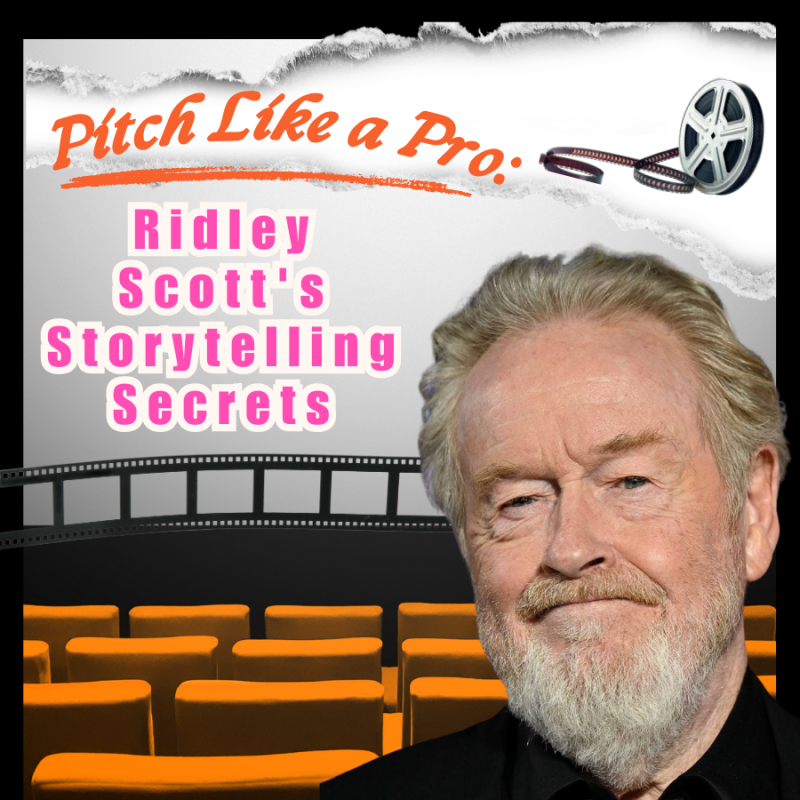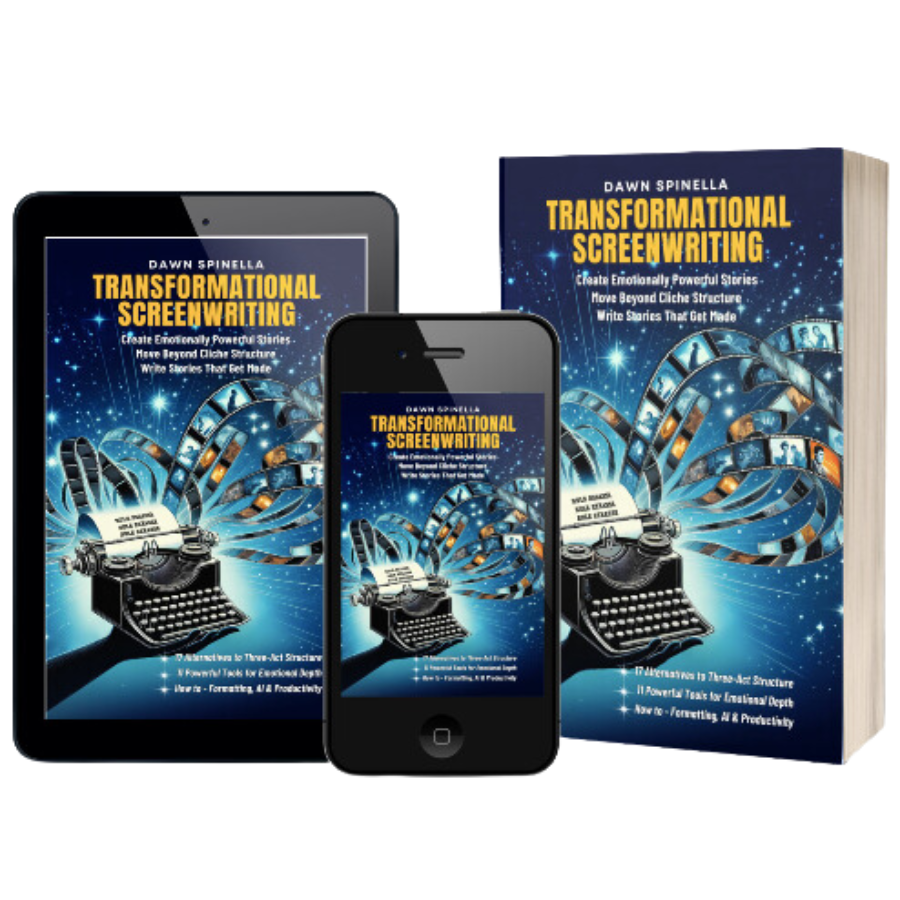When it comes to pitching a movie, brevity and clarity are your best allies. No one understands this better than legendary filmmaker Ridley Scott.
With a career spanning iconic films like Blade Runner, Alien, and Gladiator, Scott’s success is a testament to the power of a strong, concise pitch. Here’s what indie filmmakers and writers can learn from the master of visual storytelling.
Why Pitching Matters
The pitch is your first—and sometimes only—opportunity to sell your story. It’s not just about summarizing the plot; it’s about sparking curiosity, igniting imagination, and leaving your audience wanting more. In Scott’s words:
“Narrow it down to something very simple and brief—tell me the film in two sentences.”
Those two sentences must contain the essence of your story and the spark that makes it irresistible. And at its most simple, the logline (elevator pitch) should contain the protagonist, the central conflict and the genre.
How to Pitch: A Quick Guide
Ridley Scott’s approach to pitching can serve as a guide for filmmakers at any stage.
Here’s a breakdown of his key principles:
1. Be Concise
Time is precious, especially when pitching to busy professionals who hear pitches all the time. Aim to encapsulate your story in two sentences. What’s the core conflict or the ticking time bomb in your narrative?
Example:
“A group of scavengers must escape a derelict space station before it crashes into a planet’s rings in 36 hours.”
2. Add a Hook
Your pitch should have a “fuse” that hints at the tension, stakes, or unique twist. Avoid ideas that feel aimless or overly generic.
Example with a Hook:
“A group of scavengers must escape a derelict space station before it crashes into a planet’s rings in 36 hours while trying to destroy the most terrifying life-form in the universe.”
The added hook not only amplifies the stakes but also introduces a layer of tension and uniqueness, making your story stand out.
3. Tailor to Your Audience:
Tailor your pitch to the person or team you’re pitching to. Scott Free Productions, Scott’s company, looks for projects that feel “authored” and “indelible.” Ask yourself:
What makes your story unforgettable?
4. Practice Respectful Collaboration
As a producer, Scott emphasizes collaboration and respect for a director’s vision, even when offering suggestions. The same holds true for pitching—be prepared to listen and adapt based on feedback.
Ridley Scott’s Advice on Storytelling
For Scott, a great story isn’t just about characters or visuals—it’s about tension and purpose.
“When you just have [characters] doing something for something’s sake, that’s dangerous,” he explains.
In every scene, ask yourself:
- What’s driving the characters forward?
- What are the stakes?
- How does this scene propel the story toward its climax?
The Power of a Good Pitch
Ridley Scott’s career is a testament to the impact of a compelling pitch. His ability to communicate the core of a story has not only launched iconic films but also helped revive franchises like Alien and Blade Runner.
A strong pitch isn’t just about securing funding—it’s about aligning a team around a shared vision and ensuring your project gets the attention it deserves.
Pitching is an art, but it’s also a skill you can develop with practice and preparation. Whether you’re pitching to a studio, a producer, or your indie film crew, remember to distill your story to its most compelling essence.
As Ridley Scott puts it:
“Light the idea up, and within that, you’ve got to have a fuse.”
Transform Your Screenwriting: Build Stories That Demand Attention
A great pitch starts with a great story. As Ridley Scott teaches, a pitch isn’t just about what happens—it’s about why your story matters and how it stands out. Transformational screenwriting focuses on creating narratives that resonate, inspire, and leave a lasting impact.
Whether you’re crafting a pitch or refining your script, our recommended book, Transformational Screenwriting, available now on Amazon, will help you:
- Shape compelling characters that drive the story forward
- Develop high-stakes narratives that grab attention
- Find the emotional core of your story to connect with audiences and industry pros alike
Every great pitch begins with a transformative script. Elevate your storytelling today and create a foundation that makes your pitch impossible to ignore.



4 thoughts on “Pitch Like a Pro: Ridley Scott’s Guide to Making Your Story Irresistible”
Pingback: How to Leverage Social Media to Market Your Indie Film - Independent Film Arts Academy
Pingback: How to Write a Short Film That Stands Out
Pingback: Successful Film Crowdfunding Tips
Hello! I hope you’re having a great day. Good luck 🙂